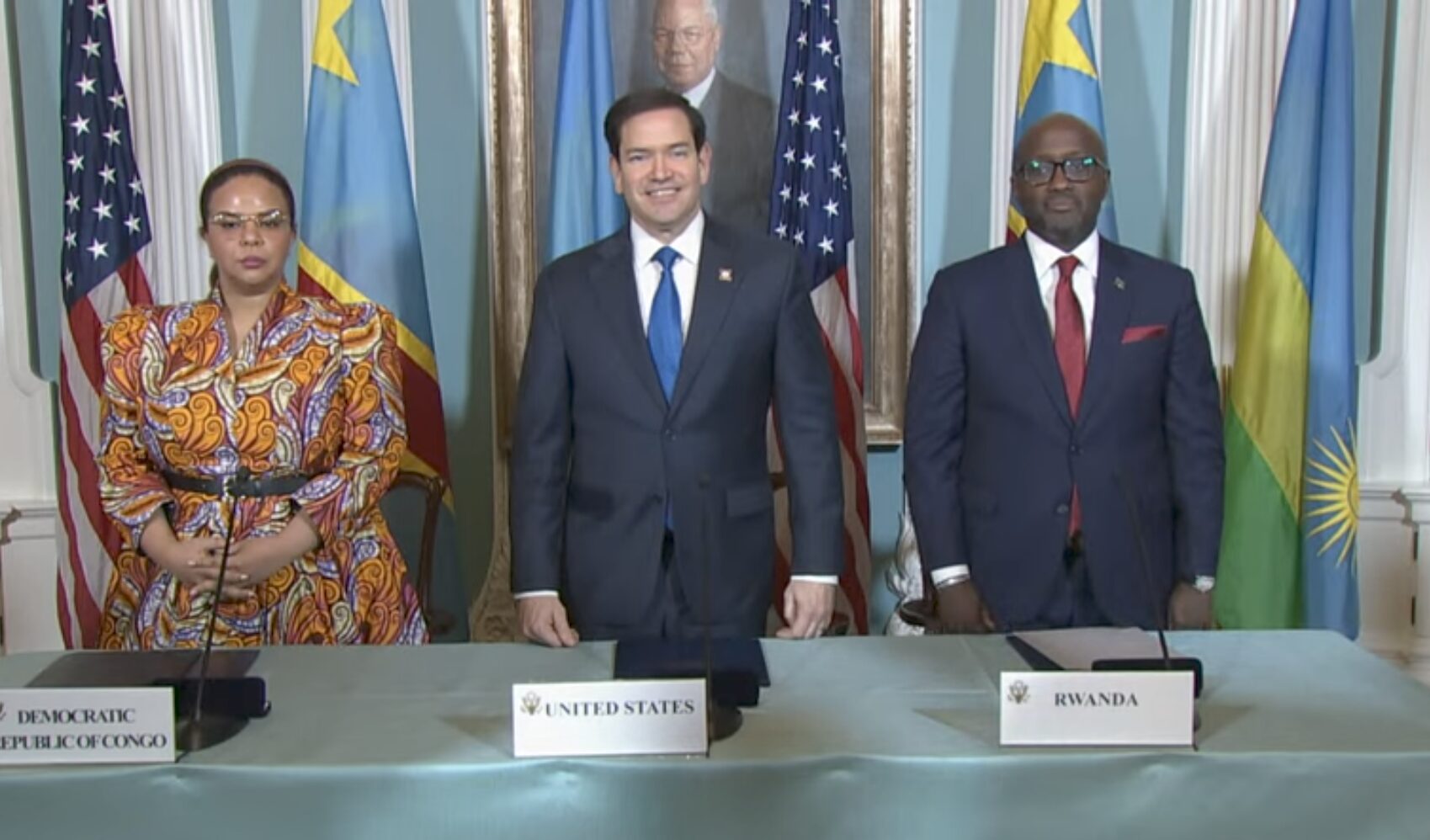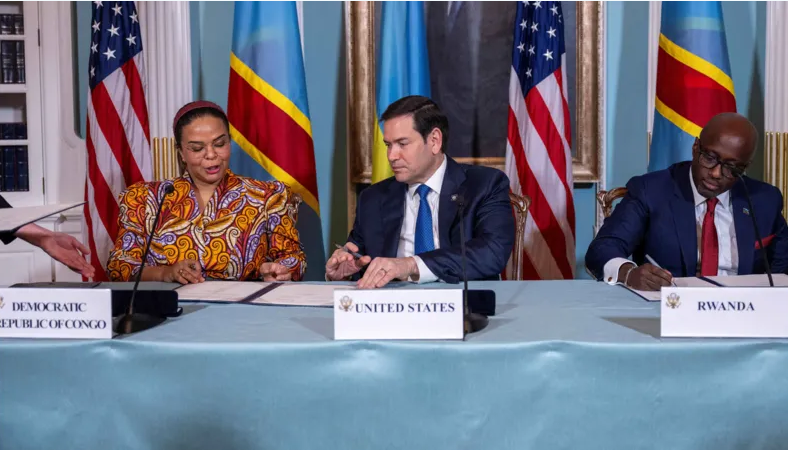
Rwanda and DR Congo Agree to Draft Peace Deal by May 2 in Effort to End Eastern Conflict
Rwanda and the Democratic Republic of the Congo (DRC) have committed to drafting a peace agreement by May 2, following diplomatic negotiations aimed at ending the ongoing violence in eastern DRC. The agreement, brokered with the assistance of the United States, emphasizes mutual respect for sovereignty and a pledge to halt military support for armed groups operating in the region.
The deal marks a critical step toward peace in the mineral-rich but conflict-ridden eastern DRC, where fighting between government forces and M23 rebels has intensified since January. The M23, which has captured key cities in the region, has been accused by the U.S. and the United Nations of receiving support from Rwanda, a claim that Kigali has consistently denied. Rwanda asserts that it is acting in self-defense, responding to the threat posed by militias, including remnants of the Hutu-led groups responsible for the 1994 genocide.
This diplomatic breakthrough follows a surprise truce mediated by Qatar just days earlier. The U.S. played a central role in bringing the foreign ministers of both countries together, with an emphasis not only on peace but also on fostering investment in DRC’s volatile eastern provinces, which are rich in valuable minerals.

U.S. Secretary of State Marco Rubio, present at the signing of the joint declaration on Friday, expressed support for the peace agreement, calling it a potential "win-win" for both nations. He suggested that the deal could pave the way for major investments in energy and mining sectors, which have long been dominated by China, signaling a growing interest from the U.S. in expanding its private-sector presence in Africa.
The agreement itself, while avoiding explicit mention of the M23, commits both Rwanda and the DRC to cease providing military support to non-state armed groups in the region. It also includes provisions for Rwanda to withdraw its forces, in line with a UN Security Council resolution passed earlier.
“It’s a positive step, but peace will require real effort, transparency, and sincerity from both sides,” said U.S. envoy to Africa Massad Boulos, who had recently visited both countries and pressed Rwanda to cease its support for M23 forces.
This agreement follows a series of ceasefires between the two nations that have collapsed since 2021. The latest escalation in violence has left thousands dead and has raised concerns of a broader regional conflict.
Political analyst Martin Ziakwau Lembisa suggests that the U.S. pressure played a key role in driving both governments toward diplomacy. “The M23 would have likely advanced further if left unchecked,” Lembisa said. “But how far the U.S. will go in terms of involvement remains uncertain.”
Despite the optimism surrounding the new deal, many remain cautious, given the history of failed truces and the complexity of the regional dynamics at play. As both Rwanda and the DRC look toward the May 2 deadline, the focus will now be on whether these commitments can translate into lasting peace or whether the cycle of violence will continue.
WafricNews – Washington, D.C.
WafricNews – Washington, D.C.


Comment
To post a comment, you have to login first
LoginNo Comments Yet...